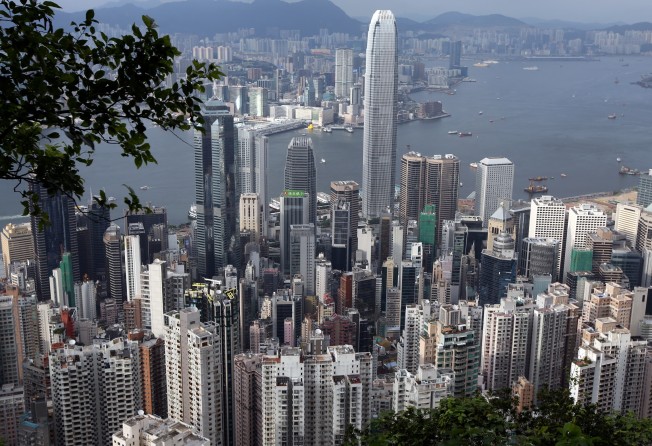City's financial industry has high hopes for real reforms
Top money men and women have given development council a blueprint for exploiting the big changes looming on mainland

The big shots of our financial institutions measure their time in gold. Yet, when the Financial Services Development Council invited them for a one-hour discussion on market development, many said: "Give me 90 minutes."
Sixty consultative sessions were held in the end. More than 60 bankers, fund managers and academics joined various discussion committees.
Their eagerness came from hope. Where else can you find an international financial centre that is at the doorstep of the world largest about-to-open financial market? Nowhere but Hong Kong.
It also came from frustration. When was the last strategic move that redefined Hong Kong on the world financial map? It was in 1993, when regulators and the market worked together to make possible the overseas listing of H shares.
Not that the industry has not lobbied for change in the past, but not many at the top had market development in mind. The bureaucrats were busy avoiding mistakes amid the intense power struggle for the chief executive's job.
The regulators, who rarely see market development as their priority, have been busy cleaning up in the aftermath of the Lehman Brothers minibond scandal and company frauds.
Tired, if not sick, of the inertia in the top-down mechanism, the industry is putting high hopes in the government-appointed council to start a market-led reform.
They have put people in. A consultancy firm seconded one of its staff to the council to analyse our market's strengths, weaknesses and future.
They put resources in. Ten investment banks and fund houses mobilised their legal and research expertise to come up with specific proposals.
They put connections in. "We have discussed our proposals with mainland authorities. I would say our proposal are pretty in line with what they have in mind," said Qin Xiao, a princeling and former chairman of the China Merchants Group.
The result is six, not one reports, which are a far cry from what the "star councils" or committees of the past used to produce. There are fewer far-fetched ideas like the building of Hong Kong into an Islamic financial centre.
There is a 42-page proposal to revitalise the reit market. It specifies where we have fallen behind other markets, how to catch up and some word-by-word amendments that are needed to our regulations.
There is a 13-point action list for the government to lobby Beijing on internationalising the yuan. "Mainland authorities want to see not only more policy proposals from participants of the offshore market but also support from the Hong Kong government on those proposals," read one report.
There are plans to make our talent more relevant to the industry, say a public fund for universities to train better financial journalists.
In the past, most ideas from consultative bodies have headed for the dungeons, but the financial industry wants this to be different. "Our proposals are very precise … [They] came from a broad cross section of people," said William Strong, a co-chief of Morgan Stanley Asia. He noted that some ideas could be implemented within several months if there was a desire.
"This is the first ever collective expertise at work that I have seen. We sincerely hope that it will be considered by the government," said Florence Yip of PricewaterhouseCoopers.
They have reasons to be hopeful. In 2011, a dozen private bankers gathered to air their frustration on the paranoid post-Lehman regulatory regime, which had made business impossible.
"It didn't make much sense for each of us to hire one lawyer to do a similar argument with the same regulator. We should come together," said one of the bankers involved. "Things started to grow from there."
In June last year, they convinced the regulator to relax its grip. In April, their consultancy came up with proposals to make Hong Kong a wealth management centre for the super-rich. In June, a minister told the Legislative Council "the government is facilitating" the industry's effort. In September, the Private Wealth Management Association was set up to represent the industry.
By summer, they hope to launch the first ever standard examination and accreditation for the city's private bankers.
Whether the success of this market-led reform will be repeated in the council's work is, however, doubtful.
The council has been swamped with politics from day one. Is it a new power base? Who is in charge of our market development, the council or the minister? Who is to be credited for any success?
It is therefore no surprise that only two concerned bodies have publicly acknowledged the council's report, namely Chief Executive Leung Chun-ying, who initiated the council, and the Hong Kong exchange.
It will be watched by the market and our competitors. This is because implemented or not, the council's reports are to leave a mark on the city's history. It is either a new beginning or the beginning of the end.